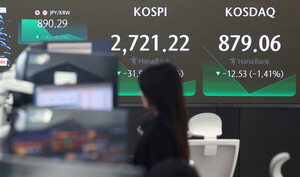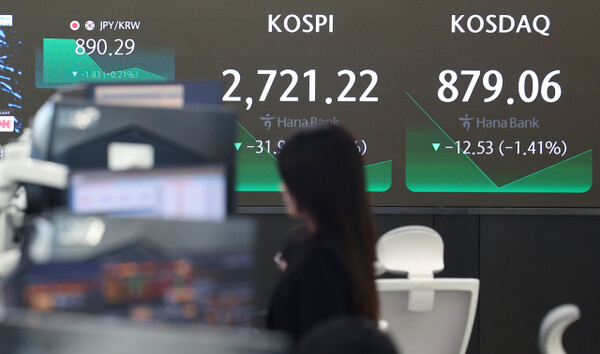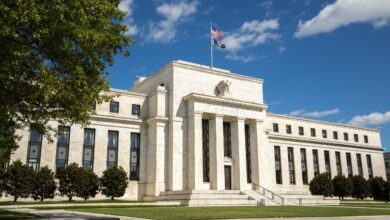Foreign Investors’ Share in KOSPI Market Cap Approaches 35%


On April 3, both the KOSPI and KOSDAQ indices began trading with declines of over 1 percent.
With foreign capital inflows continuing throughout the year, the market capitalization share in the securities market has been steadily increasing. There are expectations that the optimism surrounding the government’s Value-Up program will further amplify the influence of foreign investors in the stock market in the medium to long term.
According to the Korea Exchange on April 3, the market capitalization share of foreign investors in the KOSPI stood at 34.84 percent as of the closing price on April 2. Out of the total market capitalization of the KOSPI, which is 2,676.05 trillion won (US$1.98 trillion), the market capitalization of foreign-held shares amounted to 822.46 trillion won. With the holding ratio increasing by over 2 percent compared to the beginning of the year, when it was 32.72 percent, it is approaching 35 percent.
The foreign investor’s market cap ratio exceeding 35 percent is the highest level in three years since May 17, 2021, when it stood at 25 percent, during the early stages of the COVID-19 pandemic.
Foreign investors have been increasing their holdings, particularly in semiconductor-related stocks such as Samsung Electronics and SK hynix, throughout this year. As of April 2, foreign investors have net purchased approximately 6.6 trillion won worth of Samsung Electronics and 1.66 trillion won worth of SK hynix since the beginning of the year.
As a result, when examining the number of shares held by foreign investors, Samsung Electronics and SK hynix have the highest amounts. Foreign investors hold 3,300,332,230 shares of Samsung Electronics and 398,346,590 shares of SK hynix. Their ownership percentages stand at 55.57 percent and 54.69 percent, respectively.
Consequently, it is forecast that the influence of foreign investors on the domestic stock market will continue to increase. The government’s plan to advance the capital market is expected to contribute to resolving the “Korea Discount” and act as an incentive for mid- to long-term capital inflows.
NH Investment & Securities researcher Jeong Yeo-kyung stated, “The government’s Value-Up program is expected to support the transformation of the South Korean economy into a high-value structure by eliminating factors of distrust among foreign investors such as complex trading systems, opaque corporate governance, and the limited supply of financial market funds from domestic households.”




